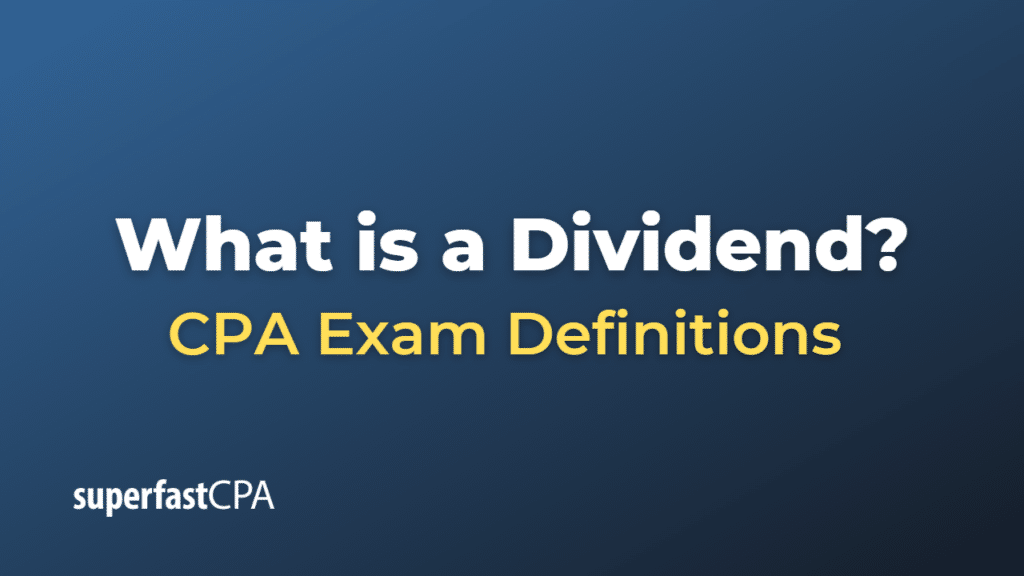Dividend
A dividend is a payment made by a corporation to its shareholders, usually in the form of cash or additional shares. Dividends are typically paid out of the company’s profits as a way to distribute a portion of the earnings back to the shareholders. Not all companies pay dividends, especially those in growth phases or sectors, as they may choose to reinvest their profits back into the business to fund expansion, research and development, or other business activities.
Dividends are often appealing to investors who are looking for regular income in addition to potential capital gains from increases in the share price. They can be particularly attractive to retirees or other investors with lower risk tolerance.
The dividend payout of a company is usually decided by the board of directors and it is typically quoted in terms of a dollar amount each share receives (dividend per share). It can also be expressed as a percentage of the current market price, which is known as the dividend yield.
However, it’s important to note that although dividends can be a sign of a company’s profitability, a high dividend yield doesn’t always indicate a healthy company. Sometimes, companies may maintain high dividend payouts even when their profitability is declining, which can potentially lead to financial difficulties in the future. Therefore, investors often consider a range of factors, not just the dividend yield, when choosing which stocks to invest in.
Example of a Dividend
Suppose you own 100 shares of a company called HealthyCo, which has decided to pay a cash dividend of $2 per share annually. When the dividend is paid, you will receive a total of $200 (100 shares * $2 per share) for the year. This amount will typically be deposited directly into your brokerage account. If HealthyCo maintains this dividend, you would receive this $200 every year for as long as you hold the 100 shares and the company continues to declare this dividend.
In addition, suppose that the current market price of HealthyCo’s stock is $40 per share. The dividend yield would then be calculated as follows:
Dividend Yield = Annual Dividends Per Share / Price Per Share
= $2 / $40
= 0.05 or 5%
So, HealthyCo has a dividend yield of 5%, meaning you would earn 5% of the value of your investment in the form of dividends every year, provided the price per share and the annual dividend amount stay constant.
Remember that real-life investing involves more complexity and risk. For instance, a company may reduce, omit, or increase its dividend based on its financial performance or business goals. Also, while receiving dividends, the stock price could fluctuate, leading to potential capital gain or loss. Hence, investing decisions should be made considering a multitude of factors.













